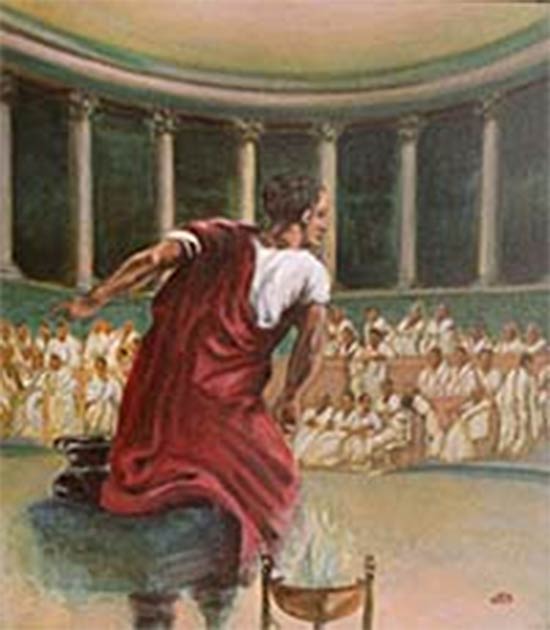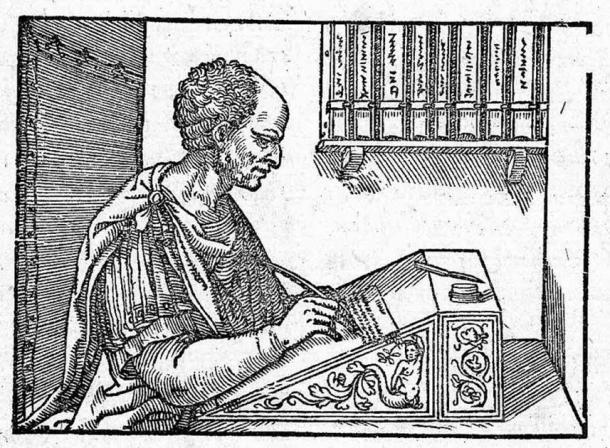In modern times, Marcus Tullius Cicero (106 – 43 BC) is remembered as the greatest Roman orator. A prolific thinker, his writings include books on rhetoric, orations, philosophical and political treatises, as well as letters. Although more than 900 of his correspondence between 67 and 43 BC survive, this is only a very small portion of the letters that he wrote and received. Many of his letters did not survive, and many others were, perhaps understandably, suppressed for political reasons after his death.

Cicero by unknown artist ( Public Domain )
Cicero’s Corpus Of Letters
Four collections of Marcus’ letters survived. The two collections that are considered to be some of the most reliable sources of information for the period leading up to the fall of the Republic are Epistulae ad Familiares (Letters to Friends ) which is a collection of letters from Marcus to various public and private figures and Epistulae ad Brutum (Letters to Brutus ), a collection of letters between Marcus and Marcus Junius Brutus , who conspired against Julius Caesar. Then there are two collections providing valuable information about Marcus Tullius Cicero as a man navigating his relationships with his nearest and dearest. One of these collections is Epistulae ad Atticum (Letters to Atticus ), which is a collection of letters from Marcus to his friend Titus Pomponius Atticus. Featuring letters from 68 to 44 BC, this collection provides a candid view into Marcus’ character through unfiltered confessions, self-revelations and his day to day moods. But the most personal of his surviving letters is Epistulae ad Quintum Fratrem (Letters to brother Quintus), a collection of letters from Marcus to his younger brother Quintus which was written with the freedom and frankness only granted to family never to be found in his correspondence with others.

Cicero writing his letters. Woodcut by unknown artist; book printed by Hieronymus Scotus (1547) ( Public Domain)
Letters To A Brother
With Quintus, his younger brother by four years, the famous Marcus Tullius Cicero speaks as he would to a brother, friend, confidant and colleague. Sometimes one would even see traces of brotherly bickering. In one letter Marcus refers several times to a poetic work in progress about Julius Caesar and his campaigns in Britain. In this letter, Marcus also appears to be responding once more to Quintus’ ongoing nagging as to the whereabouts of his promised contributions to Quintus’ poetic work. Marcus’ response to his brother’s nagging is that although he feels capable to write, he lacks the time and inclination.
Like this Preview and want to read on? You can! JOIN US THERE ( with easy, instant access ) and see what you’re missing!! All Premium articles are available in full, with immediate access.
For the price of a cup of coffee, you get this and all the other great benefits at Ancient Origins Premium. And – each time you support AO Premium, you support independent thought and writing.
Martini Fisher is an Ancient Historian and author of many books, including ”Time Maps: Gods, Kings and Prophets” | Check out MartiniFisher.com
Top Image : Cicero with his friend Atticus and brother Quintus, at his villa at Arpinum by Richard Wilson (1771) ( Public Domain )
Related posts:
Views: 0
 RSS Feed
RSS Feed

















 December 1st, 2020
December 1st, 2020  Awake Goy
Awake Goy  Posted in
Posted in  Tags:
Tags: 
















